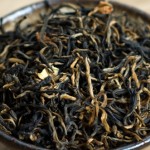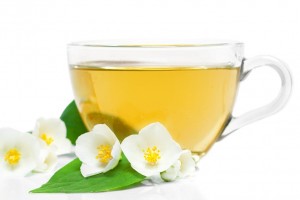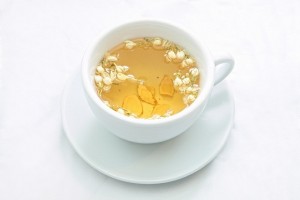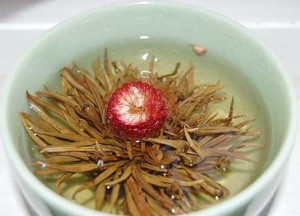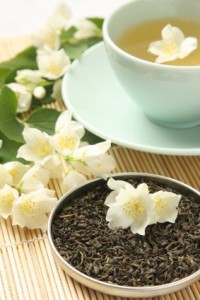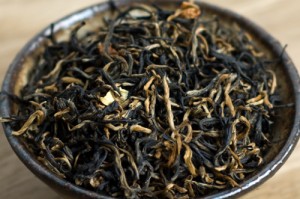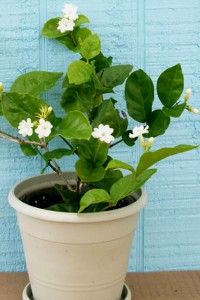Jasmine Tea
What is jasmine tea
An aromatic herbal drink, jasmine tea is prepared from regular tea leaves such as black tea, green tea, white tea, or oolong tea that have been infused with the scent of jasmine flowers. However, green tea is most popularly used as the tea base for its essential nutrients even though the other tea leaves also provide the same health benefits.
Using different techniques, the fresh flowers of jasmine are mixed with the tea leaves under optimal physical conditions allowing the leaves to absorb the fragrance. However, now most commercial jasmine teas are made by scenting the base leaves with jasmine flavors or jasmine oil.
History and origin
During the Ming dynasty (1368-1644) in China, the fragrant tea had gained immense recognition for its floral essence. It continued to be a popular drink even after the rise of the Qing dynasty (1644-1911) combined with other flavors like orange, lychee, and bergamot. Its name was also mentioned in the official records of the Song dynasty.
In the late 1800’s, it started getting exported to the Western countries from China and gradually became a favorite herbal beverage all across the world.
Does jasmine tea have caffeine
The green tea, oolong tea, black tea, and white tea used in making different types of jasmine tea contain caffeine.
Health benefits of jasmine green tea: Is it good for you
Immune-boosting properties
A good source of antioxidants, jasmine-scented green tea has high catechin content effectively fighting against the free radicals that are responsible for weakening the immune system and causing several health problems. In addition to having anti-inflammatory effects, the herbal drink contains antibacterial properties that help in relieving the symptoms of cold as well as eradicating E. coli infection.
The same effects can also be seen in its black tea variation due to the presence of theaflavins.
For cancer
Although several research studies support the cancer-preventive effects of green tea due to its polyphenols such as epigallocatechin gallate and other immune-strengthening ingredients, the jasmine extracts have been shown to contain anti-carcinogenic properties. Certain constituents in the flavored drink are also believed to suppress the activity of cancer cells, preventing excessive production of unwanted enzymes that play the role of carcinogens.
Positive effects on the digestive system
Acting as a good digestive aid, the catechins in the green tea promote the activity of other antioxidants in the body as well as digestive enzymes for regulating bowel movements, protecting the gastrointestinal tract from severe ailments. Additionally, it ability to promote the growth of useful bacteria in the digestive tract might be effective for ulcers and irritable bowel syndrome (IBS).
Heart health
The catechins and polyphenols in the tea have the ability to reduce the levels of LDL cholesterol, resulting in higher levels of HDL cholesterol, thus cutting the risk of high blood pressure and atherosclerosis, the common causes of heart strokes and other cardiovascular disorders.
For joint ailments
As a part of a regular diet, its consumption might aid in alleviating chronic joint pain and the symptoms of arthritis owing to the anti-inflammatory properties.
Useful for diabetes
Besides being an effective herbal drink for preventing diabetes, intake of the jasmine-flavored green tea by those with the condition is believed to regulate the blood sugar levels, thereby having a positive influence on the serum proteins levels.
Anti-stress properties
The aroma of jasmine can have a soothing effect on the nerves helping in enhancing mood while providing relief from stress-related conditions.
Weight management
Intake of the tea coupled with other weight-reducing methods might be effective for speeding up metabolism as a result of its antioxidant content, facilitating proper processing of the nutrients, and helping in burning the fats.
For mental alertness
The stimulating effects of the caffeine on the brain reduce drowsiness and tiredness, providing energy to stay awake.
Being rich in antioxidants, it might act as an anti-aging remedy. Its consumption could also be useful for disorders related to poor blood circulation, improving the functioning of the liver and reducing muscle pain.
How to make jasmine tea
If you are using an electric kettle, then the temperature of the water should be maintained between 160 degrees and 180 degrees as excessive heat can make the tea bitter. In other cases, where an electric kettle is not being used, you can boil the water and let it sit for 1 minute before adding the tea leaves. The following steps are for brewing 1 cup of jasmine green tea.
- Add 2 grams (less than 1 tablespoon) of jasmine green tea leaves to the boiling water
- Allow it steep for 30 seconds to 3 minutes as per the instructions given on the tea package
- Strain the mixture
- Sweeten it with honey or sugar
You may refrigerate the mixture and add some ice cubes to make iced jasmine tea.
How to prepare jasmine milk tea
Ingredients
- Tapioca pearls- 1/3 cup
- Brewed jasmine tea- 1 cup
- Water- 2 cups
- Whole milk- 1 cup
- Sugar- 1 teaspoon
- Glass- 2
Procedure
- Boil the tapioca pearls for 1 minute uncovered and then for another 7 minutes with the lid on
- Drain off the water and keep away the boiled tapioca pearls
- Fill first half of the glasses with the brewed jasmine tea and the other half with the milk
- Add sugar and stir well
- Pour half of the tapioca pearls into the first glass and the other half into the second one
- Let the pearls settle down and serve the drink cold
Safety and precautions
Side effects
Although it is regarded safe for consumption, the caffeine content in the base tea leaves could cause abdominal discomfort, frequent urination, slow blood clotting, and difficulty sleeping when taken in excess amounts. Avoid drinking the tea if you are on medications for high blood pressure, anxiety disorders, diabetes, or chemotherapy. In case the scent of jasmine triggers an allergic reaction, its use should be immediately discontinued.
During pregnancy
As several research studies have shown that intake of 200 mg or more of caffeine by pregnant women increases the risk of miscarriage, it would be better to avoid the caffeinated drink if you are expecting. High caffeine consumption has also been found to be associated with low birth weight and stillbirth. Most importantly, it may also cause rapid heartbeat, breathing problems, insomnia, and heartburn while you are pregnant. During the initial months of breastfeeding, it is advisable to stay away from the caffeinated drink or have it in limited quantities.
Where to buy
Loose jasmine leaf tea and tea bags can be availed from any local herbal tea shop or online stores. Jasmine pearl green tea is it’s another popular variation prepared by hand rolling the green tea leaves into pearls and scented with the jasmine flavor. Blackberry jasmine tea, silver needle tea, and orange jasmine tea are other variations sold at several herbal tea stores.
References
- https://en.wikipedia.org/wiki/Jasmine_tea
- http://www.teatulia.com/tea-101/what-is-jasmine-tea.htm
- https://www.organicfacts.net/health-benefits/beverage/health-benefits-of-jasmine-tea.html
- http://healthyeating.sfgate.com/health-benefit-jasmine-tea-10533.html
- https://thealternativedaily.com/8-health-benefits-jasmine-tea/
- http://www.amazing-green-tea.com/jasmine-tea-benefits.html
- https://web.archive.org/web/20191126132936/http://www.learner.org:80/courses/biology/support/8_cancer.pdf
- http://heartuk.org.uk/health-and-high-cholesterol
- http://www.ncbi.nlm.nih.gov/pubmed/1755300
- http://www.ncbi.nlm.nih.gov/pubmed/2478861
- http://healthyeating.sfgate.com/side-effects-jasmine-tea-12005.html
- https://www.babycenter.com/pregnancy/diet-and-fitness/caffeine-during-pregnancy_3955
- https://adventuresincooking.com/jasmine-green-milk-tea-boba/
Article was last reviewed on 5th December 2022
Related Articles
Leave a Reply
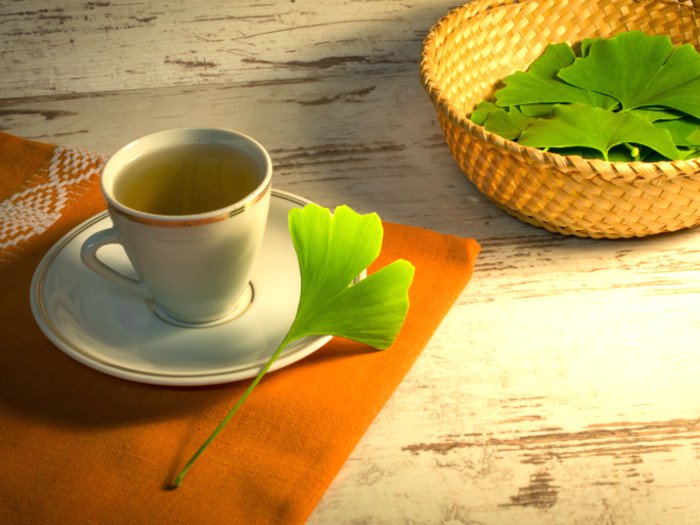
Ginkgo Biloba Tea
The Ginkgo Biloba tea is an herbal infusion obtained from the extract of the dried leaves
Read more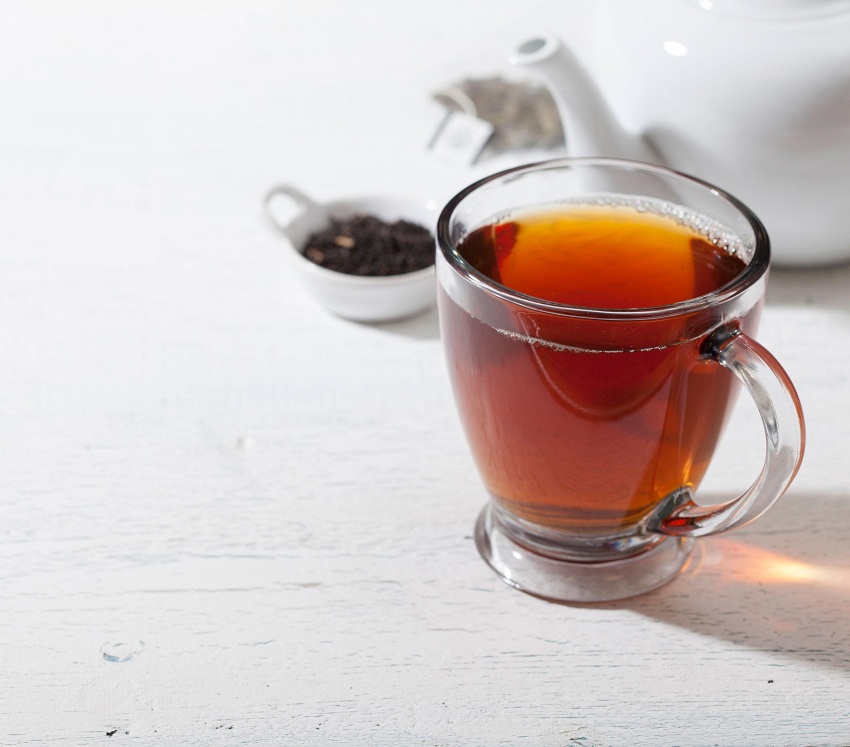
Black Tea
Black tea, belonging to the same group as the green, white and oolong teas is the most oxi
Read more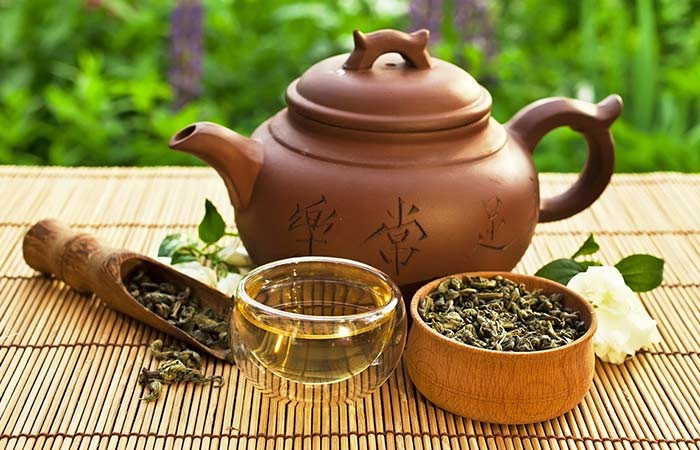
Oolong Tea
What is oolong tea Oolong, a traditional beverage of China, is prepared from the buds, st
Read more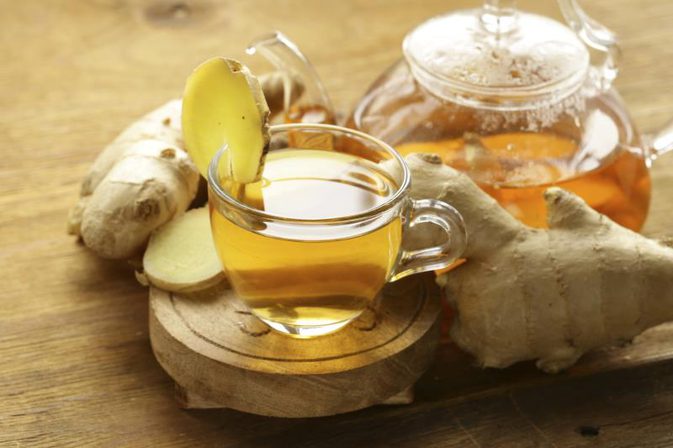
Ginger Tea
Ginger tea, prepared from the roots of ginger, is a popular herbal beverage of Asia. Becau
Read more
